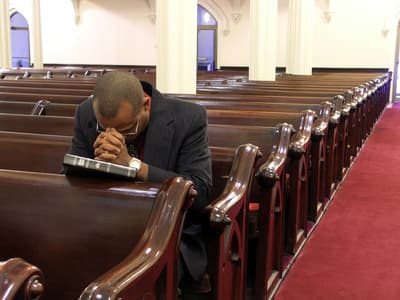The "D" Word: Looking at Undeserved Judgment and Shame Over Divorce
Recently, a teacher friend – a Christian – posted an account of one of her middle-grade students loudly proclaiming she was a horrible person because she had been divorced four times. This student was mistaken – she had been divorced twice – but I find his mistake irrelevant.
We cannot know what was behind the student’s anger, but my question is, why did this young person choose the subject of divorce in his outburst? Isn’t the shame of divorce a thing of the past?
From some of the messages I get from readers of this blog and from other readings, I get the sense that a significant number of conservative Christians continue to look on divorce as a morally wrong decision. To determine if my hunch was correct, I did a little Googling and a little calculation.
The Good News
“Very religious” Christians have typically been against divorce. But, according to a Gallup poll, with many states passing no-fault divorce laws in the 1970’s, a majority of this group now believe divorce is morally acceptable. For those of us who believe that God accepts divorce in a number of circumstances, and, in fact, allows the suffering spouse to be free of abuse and neglect, that’s great news!
This does not answer my question, though, concerning the actual number who still believe divorce is morally wrong. Is it small enough for us to dismiss, believing there will always be a few who hold on to their belief about the evils of divorce? Why worry?
And yet …
A poll in 2018 found that twenty percent of adult Americans believed that divorce was morally wrong. (https://www.statista.com/statistics/218524/americans-moral-stance-towards-divorce/) I believe that number has decreased somewhat since, but we can make some educated guesses. Working with those numbers, how many people represent that twenty percent? Forty million. Let that sink in. Forty million! I don’t know about you, but to me, that seems pretty significant. Sure, that number is shrinking, but in the meantime, this belief continues to trap a great many women and some men in marriages they don’t dare leave.
What the Bible says
Why is that, and where does that belief come from? One of the most often biblical verses used to support the “morally wrong” divorce stance is Jesus’ words in Matthew 19:9: “And I say to you, whoever divorces his wife, except for sexual immorality, and marries another, commits adultery.” Church leaders have claimed that adultery by one’s spouse is the only reason for divorce. If the decision to divorce is for any other reason, it is an “unforgiveable sin.” Neither idea is supported by most serious Bible scholars. (The only unforgiveable sin is blaspheming the Holy Spirit. Matthew 12:31-32)
Also, there are the words of the apostle Paul about marriage: “Wives, submit to your husbands as to the Lord. For the husband is the head of the wife as Christ is the head of the church …” (Ephesians 5:22-23). Too many men have taken this to mean that they are the bosses of their wives, but they ignore the previous verse: “Submit to one another out of reverence for Christ.” Paul was talking about mutual submission of husband and wife, but, again, this part has been ignored.
Have you read that God hates divorce? Some translations of Malachi 2:17 say that, but newer translations have revised that verse. I’m quite sure God does not love divorce, but even He found it necessary to divorce Israel for her adulteries, which were not sexual. (Jeremiah 3:8)
How these texts are used
Looking at these narrow interpretations of the Bible, we can begin to understand how unethical church leaders and husbands yearning for dominance can use these verses against women. This is called “spiritual abuse,” and here’s my definition of this type of behavior: “Keeping a person under control with misapplied biblical verses.” Another word for it is “brainwashing.” A wife, believing she must submit to her husband, is set up for abuse.
Should she protest in some way, her husband, church elders, or a pastor, may harass and humiliate her, accusing her of sinning. These actions might very well cause psychological trauma, making her distrust her own instinct for justice or even survival. If she finds the strength to leave, she not only may lose her Christian community, her source of emotional and spiritual support, but may feel she has lost God.
In a guest post on this blog (Deep Wounds Remain), the writer described how the church treated her when she went to the pastor for help dealing with her husband’s infidelity. “It was suggested I confess before the church for any part I might have had in leading to my husband’s wanderings. He wasn’t asked to acknowledge his wrong doings, and he didn’t volunteer … once counseling started, I was completely ostracized by the other women in the church.”
Another guest posted (Liberation from the Patriarchal Church), “Over the years I realized the church betrayed me and our daughter. Its focus was on my staying in the marriage, being complicit in keeping order over myself and our child, and assuming blame for his behavior. A good woman could turn him around. After the divorce, within church walls or teachings, I gained no comfort. I was the woman who had a failed marriage. The status of my husband in this failure was of no matter. Anger and disappointment led me from institutional religion. I stay away to protect my heart, mind, and soul.”
My Own Experience
Why is this issue so important to me? In my memoir, God, the Devil, and Divorce: A Transformative Journey Out of Emotional and Spiritual Abuse, I describe three instances when biblical teachings were used to shame me as I made the difficult decision to divorce. “If you divorce, Satan wins,” my counselor declared. She intimated that I would be vulnerable to demonic influence because I had not given control of my life over to my husband.
Once I made the decision to leave, I received a three-page letter from a friend of my husband claiming my decision was “out of God’s will. I see you wanting to control [your husband] … he was your head. He is not accountable to you but to God. … I see you as an incredibly controlling person and it is time for you to fall on your face before the great Counselor Jesus. God can soften your stiff neck and heart of stone, but it will be His way or no way. … I recommend you find a church where there is strong male headship and no compromising of clear scripture.” And on it went.
The third instance of being rejected for my choice to divorce was when I began searching for a new church. I’d attended one a few times and chatted with the pastor. Since I thought perhaps it would be a good fit for me, I had a more lengthy discussion with him. When I told him that I had divorced my husband, his demeanor changed. “Oh!” he exclaimed, “Since you were the one to decide to divorce, you could never be a full member of this church. I suggest you look into the church down the road where there is a large singles group.”
You can imagine the hurt and anger I felt over my husband’s friend’s words. I wrote him back, telling him how much he had hurt me. (You can read about his response to that in my memoir.) And that although shocking, my counselor’s declaration helped me tap into what I truly knew about God. I knew He wept with me over the pain of my husband’s rejection, and He cared for me so much more than he cared about preserving my marriage. Once I understood that, I was able to brush off that pastor’s response about not being welcome in his church. I believed God would deal with him and the church in due time, and I found love and support in the church down the road.
My hope is that the use of “divorce” as a dirty word will soon fade into the past and will cease to be an undeserved source of shame and judgment. Instead, the church will treat the divorced Christian with compassion, and I've written a comprehensive blog post on this subject: "Domestic Abuse and Faith: How Churches Can Help Instead of Hurt." In a videotaped interview sponsored by Village Books of Bellingham, Washington, I was recently asked what I would like churches to do for divorced people. “Love on them,” I replied. “Just love on them.”
Blessings to you,
Linda M. Kurth is a writer and a divorced and remarried Christian. In going through the divorce, she experienced a dichotomy of responses from the Christian community. After sharing some of those experiences in her new memoir, God, the Devil, and Divorce, she's heard many stories of divorced Christians who have struggled with the same issues. This blog invites divorced Christians to tell their stories with the goal of encouraging churches to resist condemnation and become a source of healing and grace.
I welcome your comments and feedback.









